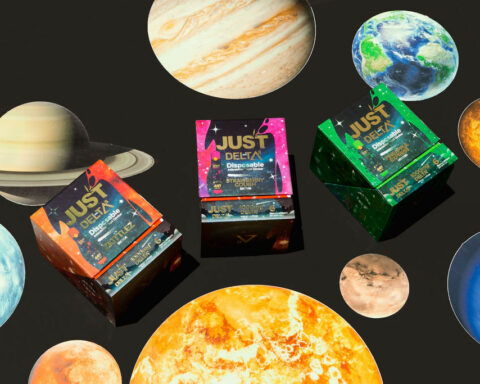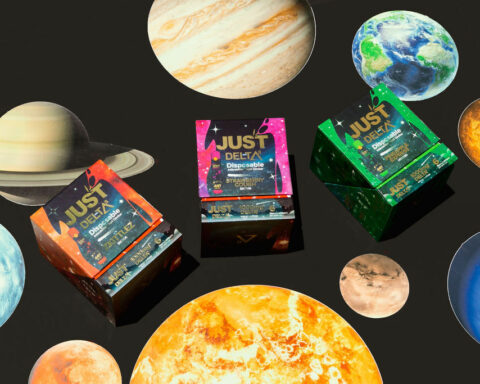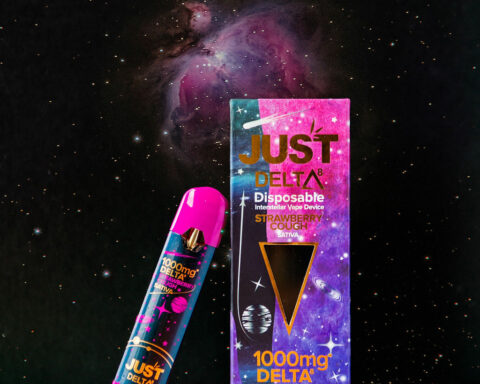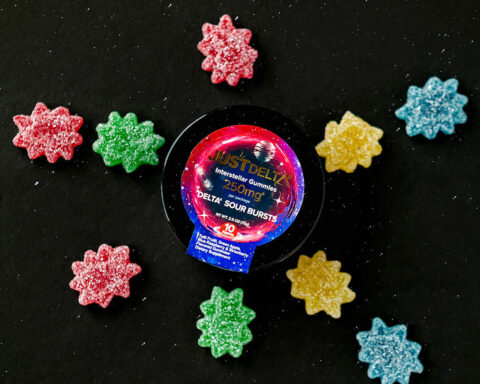Delta-8 and delta-10 compounds seem to be complex. Their products are diverse and vary in their chemical composition. The great work done by researchers has enabled readers to understand the cannabis plant better.
Both Delta 8 and Delta 10 are products of the cannabis plant, but they are somewhat different. The ever-growing popularity of these cannabinoids is increasing. That’s why there are many beginners when it comes to using both Delta 8 and Delta 10 products. Variations begin from the number of terpenes to the number of cannabinoids. This article is meant for those who want to know more about the contrasting factors between the delta 8 and delta 10 products.
Delta 10
Mabrouk et al. (2013) provided a preview of the delta 10 manufacturing process through the aquifer. THC is a consequence of the hemp plant. It is legal in numerous states in the United States. Its effects tend to lie between delta 8 and 9 variants. Compared to Delta 9, Delta 10 is much milder and more subtle. Due to the complexity of its extraction methods, Delta 10 is quite rare compared to the other delta variants.
On the other hand, Delta 8 is also legal in a major part of the USA. When it comes to its resemblance, it is related to the strains of Indica. Like cannabinoids, it can bind with receptors found in the brain, thus providing an experience like Delta 9 THC. The ability to bind receptors means it is useful in stress management and providing pleasant feelings. Compared to Delta 9, Casajuana Kögel et al. (2018) clarified that Delta 8 is less psychoactive; thus, it gives the user room to be clear-headed after consuming it. However, most of its users opt to take it at night due to its relaxing effects.
Extraction of Delta 10
Just like Delta 8 THC, Delta 10 is available in trace quantities. It can be extracted from CBD isolate or Crude CBD. Other methods that can extract Delta 10 are hydrocarbon extraction and ethanol and cryo-ethanol extraction. When narrowed down to chemical extraction methods, the amount of Delta 10 THC taken out is of minimal quantity. Delta 10 looks like cannabis sativa strains with a much higher effect than delta 8.
Differences between Delta 8 THC and Delta 10 THC
Expected Effects
Both Delta 8 and 10 have a similar effect, just like CBD and THC. Nevertheless, they have varying chemical compositions, making them slightly different from the other cannabinoids. Bergeria et al. (2022) generally compared Delta 8 and 10 and noted that they have stronger effects than Delta 9.
Delta 8 tends to have strong effects than Delta 10. The majority of its users have commented that having a sleepy and relaxed feeling makes this cannabinoid great when used in the evening. On the other hand, Delta 10 THC is more of marijuana, a common sativa strain. It offers an uplifting feeling as other users report gaining extra energy that motivates them to work.
Psychoactivity
Classification of cannabinoids is usually based on their psychoactivity. For instance, Atakan (2012) noted that CBD is not psychoactive, unlike THC, which is associated with and known for its psychoactive effects. Therefore, both delta 8 and 10 have psychoactive effects. When comparing the two, Delta 10 is 20 -30 % potent, whereas Delta 8 is weaker than delta 10. This means that Delta 10 is stronger than Delta 8 in offering the high effects in terms of potency.
Federal Legalization
Delta 10 products and delta 8 have their popularity growing at an alarming rate. They are both good for newbies and can are easily availed in the market. Both the THC products are gotten from legally-established hemp plants. The DEA’s legalization process for both delta 8 and 10 is underway. Therefore, some states have not legalized these products, while some are okay with their usage at a reasonable amount.
Taste
Delta 8 is known to offer effects similar to the marijuana plant, whereas Delta 10 is simulated in the sativa plant.
General Differences between the Two
Delta 8 is double-bonded on its 8th carbon ring, while delta 10 has only one ring on its 10th carbon ring. Hence results in a potency difference where Delta 8 is slightly around 50-66% potent, just like delta 9 though delta 10 is significantly less potent. Its potency levels are approximately 20-30% lower than delta 8. The research above argues that Delta 8 has possible appetite-stimulating, analgesic, and anti-inflammatory properties, unlike Delta 10, whose research is limited or non-existent. Neither delta 10 nor delta 8 has significant side effects. Notably, the side effects of Delta 8 are mostly feared when one overdoses. Because of their molecular structure variation, Delta 8 and 10 have different reactions to the consumer’s body.
How both Delta 8 and 10 Work
Both delta 10 and 8 get into the body through the gastrointestinal system, whereby metabolism takes place with the help of enzymes known as cytochrome p450 found in the liver. After completing metabolism, the metabolites pass through the bloodstream and are channeled to various body parts to feel it. Among the consumer body areas in which the metabolites are distributed are immune cells, fat tissues, the central nervous system, and the hair follicles.
Conclusion
These delta THCs have promising benefits that one wouldn’t want to miss out on. Although there are few variations between the two, Delta 8 and Delta 10 THC are more or less the same. However, the variations come in due to people’s preferences regarding the time of taking it and what seems good for newbies and veterans. These slight effects are brought about by their varying chemical structures in their double bonds. Delta 8 is double-bonded on its 8th carbon ring, unlike delta 10, with only one ring on its 10thcarbon ring. The difference results in a potency variation whereby Delta 8 is slightly around 50-66% potent, just like delta 9 though delta 10 is less potent.
References
Atakan, Z. (2012). Cannabis Is A Complex Plant: With Different Compounds And Different Effects On Individuals. Therapeutic Advances In Psychopharmacology, 2(6), 241-254.
Bergeria, C. L., Strickland, J. C., Spindle, T. R., Kalaba, M., Satyavolu, P. U., Feldner, M., … & Weerts, E. (2022). A Crowdsourcing Survey Study On The Subjective Effects Of Delta-8-Tetrahydrocannabinol Relative To Delta-9-Tetrahydrocannabinol And Cannabidiol. Experimental And Clinical Psychopharmacology.
Casajuana Kögel, C., López-Pelayo, H., Balcells-Olivero, M. M., Colom, J., & Gual, A. (2018). Psychoactive Constituents Of Cannabis And Their Clinical Implications: A Systematic Review. Adicciones, 30(2).
Mabrouk, M. B., Jonoski, A., Solomatine, D., & Uhlenbrook, S. (2013). The Basis For Assessing Impacts Due To Climate Changes And Water Resource Development Is A Review Of Seawater Intrusion In The Nile Delta Groundwater System. Hydrology And Earth System Sciences Discussions, 10(8), 10873-10911.
- FDC – Giejo Magazine Article - July 29, 2023
- MoriMa Tea the – Chinese tea culture - April 26, 2023
- Missionary Position – Least Likely To Bring You To Climax - April 7, 2023






